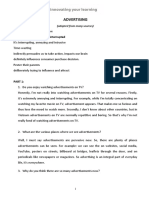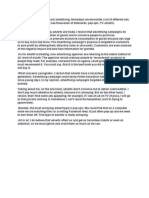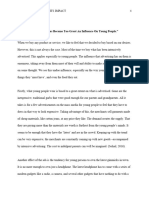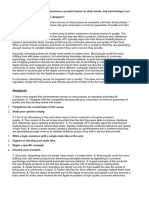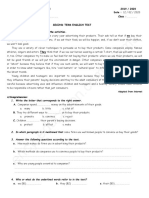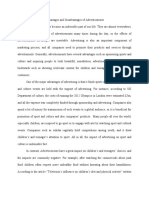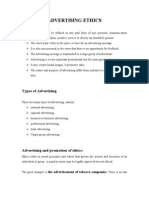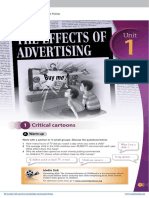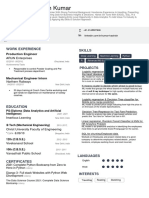0% found this document useful (0 votes)
110 views6 pagesWriting-Advertising (Topic 1)
The document discusses the positives and negatives of advertising. It notes that advertising is necessary for businesses and helps consumers by informing them of product options, but it can also manipulate people and encourage materialism. The document also examines opinions about advertising, including that it should be regulated, especially advertising aimed at children, and that warnings should be required for certain products like cigarettes. However, it states that advertising also plays an important role in free market economies.
Uploaded by
Leanne GuoCopyright
© © All Rights Reserved
We take content rights seriously. If you suspect this is your content, claim it here.
Available Formats
Download as PDF, TXT or read online on Scribd
0% found this document useful (0 votes)
110 views6 pagesWriting-Advertising (Topic 1)
The document discusses the positives and negatives of advertising. It notes that advertising is necessary for businesses and helps consumers by informing them of product options, but it can also manipulate people and encourage materialism. The document also examines opinions about advertising, including that it should be regulated, especially advertising aimed at children, and that warnings should be required for certain products like cigarettes. However, it states that advertising also plays an important role in free market economies.
Uploaded by
Leanne GuoCopyright
© © All Rights Reserved
We take content rights seriously. If you suspect this is your content, claim it here.
Available Formats
Download as PDF, TXT or read online on Scribd
/ 6





